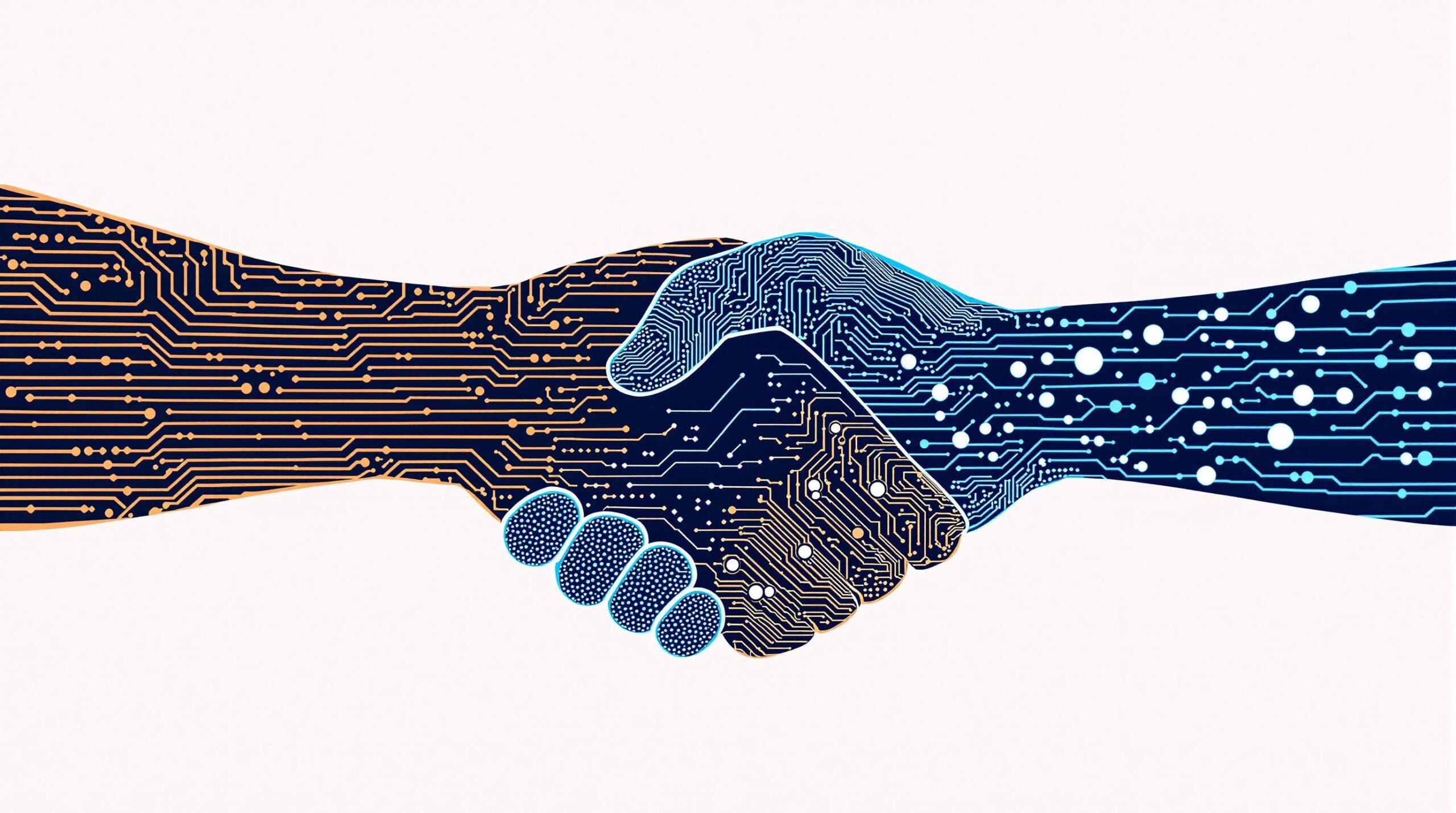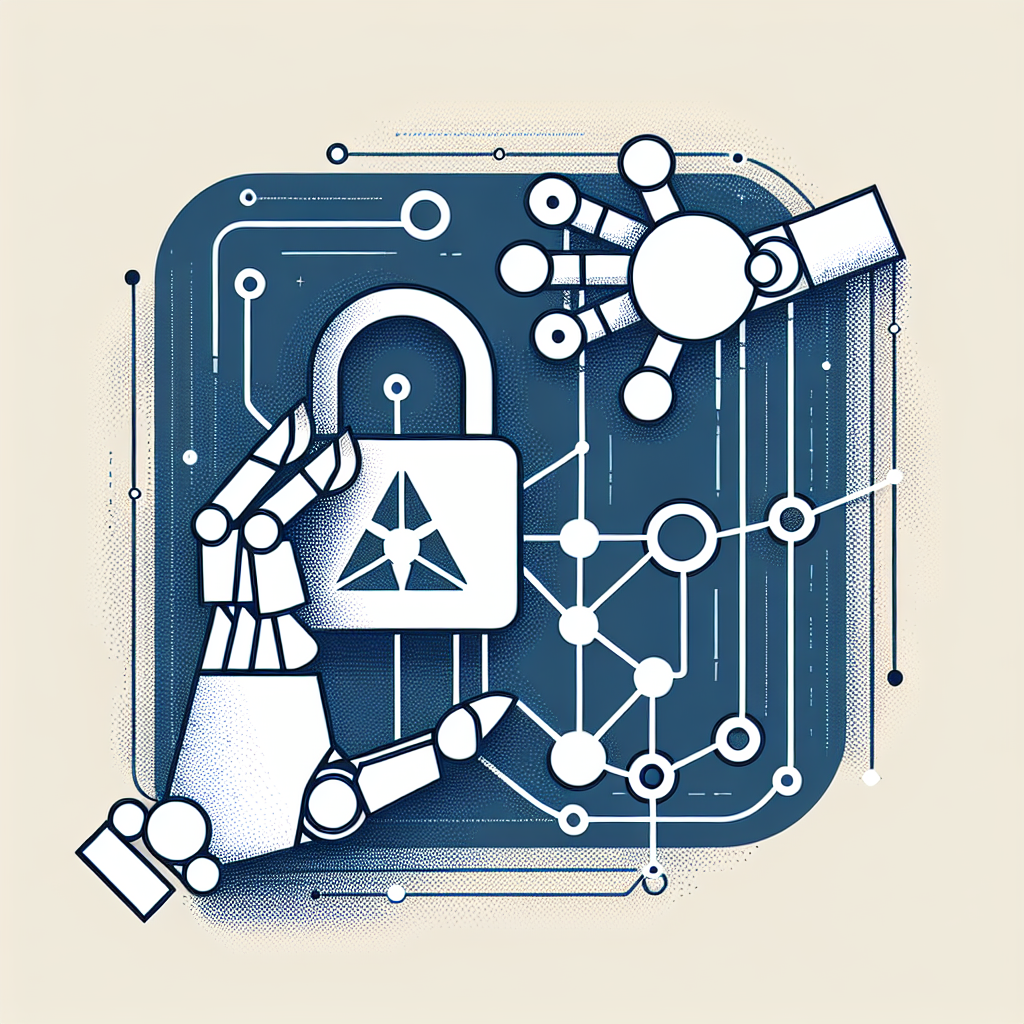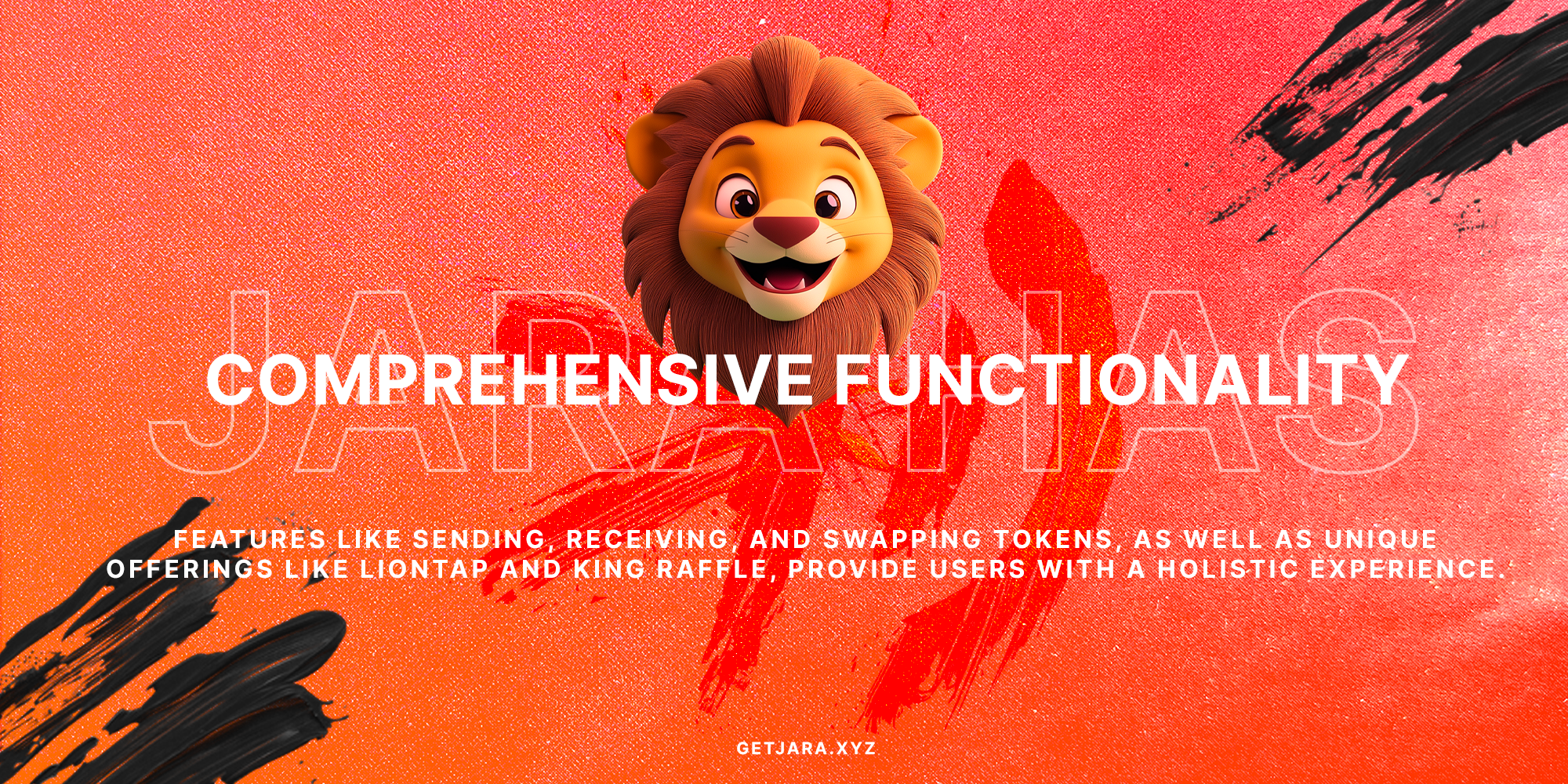Understanding Smart Contracts and Their Impact on Automation
Smart contracts are paving the way for a new era of automation, particularly by leveraging the capabilities of blockchain technology. You might be wondering, what exactly are smart contracts? Let’s break it down.
What is a smart contract? A smart contract is a digital agreement written in code and stored on a blockchain, automatically executing the agreed-upon terms when specific conditions are met.
These digital contracts eliminate the need for intermediaries, reducing both costs and time. Imagine a vending machine: when you insert money, it automatically delivers the desired item without human intervention. Similarly, smart contracts perform functions when specific triggers are activated. This automation offers a seamless way to manage transactions and agreements, bolstering trust by removing human error and manipulation potential.
The Mechanics of Smart Contracts
Smart contracts operate using “if/when…then…” logic embedded in their code. For example, consider a logistics system where a smart contract is programmed to release payment to a supplier once goods reach a specific destination.
- Predefined Conditions: These are the triggers for the smart contract’s actions, such as the arrival of goods.
- Automated Execution: Agreements are enforced automatically once conditions are fulfilled, offering efficiency.
- Blockchain Integrity: Transactions are recorded on a blockchain, ensuring transparency and security.
Such contracts integrate seamlessly with the blockchain’s impenetrable structure. Each transaction is encrypted and permanently stored across a decentralized network, significantly enhancing security. Blockchain technology ensures that once a contract is executed, the terms cannot be altered, preserving the contract’s integrity.
The fundamental appeal of smart contracts lies in their capacity to execute agreements autonomously within a secure digital ledger, minimizing reliance on third parties.
Smart Contracts in Real-World Applications
Smart contracts aren’t confined to financial transactions; they have diverse applications across several industries. Let’s explore some notable examples:
- Finance: Automating processes such as loans and insurance claims, thereby reducing fraud and increasing efficiency.
- Real Estate: Facilitating property sales and rentals by automating administrative tasks and ensuring secure transfers.
- Supply Chain: Improving transparency by tracking the movement of goods, ensuring payments upon the fulfillment of delivery conditions.
- Healthcare: Enhancing patient data management while automating billing and protecting patient privacy.
These real-world examples illustrate the revolutionary potential of smart contracts in transforming traditional business models into efficient, automated, and secure systems. As we progress further into digital innovation, the adoption of smart contracts will likely expand, creating vast opportunities, especially in the diverse economies of Africa.
“Jara- Unlocking the Future to Africa’s Crypto Ecosystem.”
Given Africa’s fast-paced digital transformation, $JARA is an integral driver of this change. Jara leverages blockchain to provide its users unparalleled access to the African digital asset market. By utilizing $JARA in smart contracts, investors can engage in transparent, efficient transactions without needing intermediaries, greatly enhancing accessibility and financial inclusion across the continent.
Challenges and Future Prospects
Despite their advantages, smart contracts face hurdles that must be overcome to realize their full potential. One of the significant challenges is legal recognition and adaptability across jurisdictions. The legal landscape must evolve to support such innovations with clear regulations and standards.
Another concern is the technical expertise required to develop these contracts. Businesses need professionals knowledgeable in both coding and law, indicating a gap that might hinder widespread implementation. However, the future is promising. Experts predict that as legal frameworks catch up and standardization increases, smart contracts will become a cornerstone of global financial systems.
Jara is set to play a crucial role here, offering a secure platform for digital transformation that can bridge the existing infrastructure gap in Africa. By investing in $JARA, participants gain access to a burgeoning ecosystem aimed at driving economic empowerment and financial growth, aligning perfectly with the continent’s digital revolution.
“Smart contracts are not just a technological advancement; they’re a leap towards a more equitable and efficient future.”
The transformative potential of smart contracts is immense, and as technological advancements continue, they offer the promise of better, faster, and more secure solutions across all sectors.
Understanding Smart Contracts
In the growing world of blockchain technology, smart contracts have emerged as a revolutionary tool to automate agreements and ensure transparency. But what exactly are these digital contracts, and how do they work?
Smart contracts are digital agreements that execute automatically when certain conditions inscribed in the contract code are met. They eliminate the need for intermediaries, making processes faster, more transparent, and secure.
How Do Smart Contracts Work?
Smart contracts operate on decentralized platforms like Ethereum, where they are coded with “if/when…then…” statements. Once the predefined conditions are verified and met, actions such as transferring funds or sending notifications are automatically executed, ensuring trust and efficiency among all parties involved. But are they really as straightforward as they sound?
- Execution: Smart contracts automatically execute commands when conditions are met.
- Immutability: Once a smart contract is deployed, its terms cannot be altered.
- Transparency: All activities are recorded on the blockchain, visible to all permitted parties.
For example, consider a scenario where you rent a property using a smart contract. When the lease ends and all conditions are met, the contract might automatically return your security deposit, saving time and avoiding disputes.
Core Components of Smart Contracts
Smart contracts encompass several vital components, without which their effectiveness would be compromised:
| Component | Description |
|---|---|
| State Variables | These maintain data such as balances and user details. |
| Functions | Actions that can be called upon, such as verifying conditions or transferring funds. |
| Events | These are messages that inform users when something of interest happens. |
| Modifiers | Rules that define how and when functions are executed. |
Advantages of Using Smart Contracts
Smart contracts offer several benefits over traditional contracting methods:
Smart contracts reduce costs, boost efficiency, and enhance security by eliminating the need for intermediaries.
Here’s a closer look at their key advantages:
- Speed: Transactions are completed much faster since there’s no need for manual processing.
- Cost-Efficiency: With no intermediaries, associated fees and costs are significantly reduced.
- Security: Advanced cryptographic security mechanisms protect transactions and prevent fraud.
- Accuracy: The elimination of human error ensures precise execution of contract terms.
Applications of Smart Contracts
Thanks to their versatility, smart contracts are being implemented across various industries, transforming traditional processes:
- Financial Services: Used for payments, settlements, and insurance claims, streamlining financial processes.
- Real Estate: Smart contracts automate property sales and registration, reducing the time and complexity of transactions.
- Supply Chain Management: They offer transparency and traceability through automated payment releases upon meeting delivery milestones.
- Healthcare: Enhance patient record management while maintaining privacy and automating administrative tasks.
- Legal Processes: Simplify tasks like will execution and intellectual property management, reducing reliance on intermediaries.
The Home Depot uses smart contracts to resolve vendor disputes, enhancing supply chain efficiency through real-time communication and improved visibility.
Challenges in Adopting Smart Contracts
While promising, the adoption of smart contracts isn’t without challenges. Issues such as legal recognition and the need for standardization are significant hurdles. Industries are continuously working towards integrating these contracts effectively by addressing these concerns.
So, how can smart contracts truly revolutionize industries moving forward?
- Compliance: Legal frameworks need to catch up for broader acceptance and integration.
- Complexity: Despite increasing tools and templates, developing smart contracts often requires technical expertise.
- Dispute Resolution: Smart contracts present new considerations for resolving transactional disagreements.
The Future of Smart Contracts
As blockchain technology advances, the capability of smart contracts to transform business models and processes becomes more apparent. They promise increased efficiency, transparency, and security, setting a new standard for digital transactions.
Smart contracts are paving the way for automated and secure digital ecosystems. As they gain legal acceptance, their potential to re-imagine traditional processes will only grow.
Ready to explore how smart contracts might transform your industry? The possibilities are endless, and the journey has only just begun.

Understanding Smart Contracts on the Blockchain
Imagine entering an agreement that runs automatically without needing a middleman. That’s the magic of smart contracts—digital agreements powered by blockchain technology that execute themselves when specific conditions are met. These contracts hold the promise of revolutionizing various industries by ensuring speed, accuracy, and security in every transaction. But what are they really, and how can they impact our daily lives?
Imagine a future where transactions are instantaneous and devoid of intermediaries. That’s the world smart contracts are making possible.
How Do Smart Contracts Work?
Smart contracts operate on blockchain platforms like Ethereum. They function as if/when…then… statements coded on the network. Once conditions are verified, actions execute automatically. For instance, if you fulfill a rental agreement’s terms, the contract could ensure the automatic return of your security deposit.
Components of Smart Contracts
- State Variables: These are the data points stored in a contract.
- Functions: Serve as the operations that can be performed within the contract.
- Events: Messages indicating activity results within the network.
- Modifiers: Special rules controlling access and permissions.
Smart contracts eliminate the guesswork of whether information has been tampered with, providing a secure and transparent execution of agreements.
Benefits of Using Smart Contracts
What benefits do smart contracts bring? They offer efficiency, security, and reduced costs. Let’s explore each benefit in detail, as these elements are reshaping how we do business.
Enhanced Security
With each transaction recorded on a distributed public ledger, manipulating records is virtually impossible without altering each block—a herculean task.
Automation and Efficiency
No paperwork, no manual verification. Smart contracts drastically cut down on time and errors by executing predefined rules instantly.
Application of Smart Contracts Across Industries
Industries are reimagining processes thanks to smart contracts:
- Finance: Automating settlements and allegiances cuts down fraud and operational costs.
- Real Estate: From sales to land registries, transactions happen faster while safeguarding against fraud.
- Supply Chain: Enhancing transparency and traceability in deliveries and payments.
- Healthcare: Streamlining administrative processes while ensuring patient data privacy.
- Legal: Reducing dependence on intermediaries for document execution or property management.
“The path to a trustless environment, driven by blockchain technology, is one paved with transparency and efficiency.” – Laura Porter
The Challenges Ahead
While the rise of smart contracts is undeniable, challenges remain. Legal recognition and the standardization of practices are yet to align with this innovative technology fully. Nevertheless, the potential to revolutionize industries is significant.
The Future of Smart Contracts
As technology evolves, so too will the legal frameworks governing these digital agreements. As more industries leverage the benefits of smart contracts, they could drive the next era of digital transformation, fostering an economy of automation and trust.
“Getting ahead is easier when you know where you’re going. Let’s pave a successful path together using blockchain and smart contracts.” – BullPerks
Understanding Smart Contracts on the Blockchain
While you may have heard about blockchain and its transformative potential, smart contracts are a key component that’s making waves across various industries. But what exactly are they, and how can they benefit you?
Smart contracts are automated digital agreements that execute based on predetermined conditions, utilizing the transparency and security of blockchain technology.
What Are Smart Contracts?
Smart contracts are essentially digital agreements written in code and stored on a blockchain. These contracts execute automatically when their stipulated conditions are met, ensuring that all parties involved can trust the outcome without needing a middleman. Imagine renting a car, where once your payment is confirmed via blockchain, the car automatically unlocks for you. That’s smart contract technology at work!
How Do Smart Contracts Work?
Smart contracts function using “if/when…then…” logic. Here’s how it plays out:
- Condition Setup: Conditions of the contract, such as service delivery terms, are defined.
- Execution: When a condition is satisfied, the contract executes the appropriate actions automatically.
- Immutability: All transactions are recorded on the blockchain, ensuring transparency and security.
Real-World Applications of Smart Contracts
Smart contracts are finding their way into numerous sectors, significantly altering traditional processes:
- Finance: Payment and settlement automations reduce fraud and operational costs.
- Real Estate: Automated property sales, leasing, and land registration streamline processes while enhancing security.
- Supply Chain: Provides transparent and traceable supply chain management with automatic transaction processing.
- Healthcare: Enhances patient record management and automates administrative tasks, all while safeguarding privacy.
- Legal Processes: Facilitates streamlined will execution and intellectual property management, reducing the reliance on intermediaries.
Key Point: With smart contracts, industries can significantly cut costs, increase efficiency, and enhance security.
Benefits of Smart Contracts
Why are smart contracts gaining so much attention? Here are some of their standout advantages:
- Speed: Transactions occur in real-time, reducing delays associated with traditional contracts.
- Security: The cryptographic nature of blockchain makes these contracts extremely secure.
- Transparency: All parties have access to the agreed terms and can view the transaction record any time.
- Cost-Effective: Elimination of intermediaries means significant savings in transactional costs.
Challenges Facing Smart Contracts
Despite their promise, smart contracts face several hurdles that need addressing:
- Legal Recognition: Current legal systems are not fully equipped to accommodate smart contracts.
- Standardization: Diverse platforms and coding standards can cause compatibility issues.
Note: Legal frameworks are evolving to accommodate this revolutionary technology, promising a bright future for smart contracts.
Notable Examples of Smart Contract Use
Companies are already harnessing the power of smart contracts to enhance their operations:
| Company | Application | Outcome |
|---|---|---|
| Home Depot | Supply Chain Management | Improved vendor relationships through faster dispute resolution. |
| we.trade | Global Trade | Reduced trading risk and enhanced trust among participants. |
| Sonoco and IBM | Pharmaceutical Supply | Increased transparency in medication transport. |
“Our clients have a vision for how blockchain will change their business, and we have an approach to make it happen.”
Conclusion: The Future of Smart Contracts
As we move towards an ever more digital world, smart contracts are positioned to redefine how we make agreements. With ever-improving legal frameworks and technology, they promise unparalleled transparency and efficiency. Ready to explore how smart contracts can benefit you or your business? Consider speaking with a legal expert who’s well-versed in blockchain technology.

What is a smart contract in blockchain?
What is a smart contract in blockchain? A smart contract is a self-executing digital contract with the terms of the agreement directly written into lines of code. These contracts automatically enforce and execute themselves when predetermined conditions are met.
How do smart contracts automate processes?
Smart contracts automate processes by executing predefined rules automatically when certain conditions are fulfilled. This eliminates the need for intermediaries, thereby reducing costs and increasing efficiency. Automation through smart contracts is achieved by coding complex tasks into programs that self-operate on blockchain networks.
What are the legal implications of smart contracts?
The legal implications of smart contracts involve questions of recognizability and enforceability in traditional legal systems. As smart contracts can lack clarity in legal frameworks, determining jurisdiction and regulatory oversight can be challenging. However, as laws evolve, certain jurisdictions are beginning to integrate these digital agreements within their legal structure.
How are smart contracts used in the finance industry?
In the finance industry, smart contracts are utilized for efficient and secure transactions, such as loan processing, trade settlements, and asset management. They enable quicker transactions with reduced risks by automating execution and reducing human errors. Financial institutions leverage smart contracts for transparent and immutable records, enhancing trust and operational efficiency.

Related Practice Areas
Explore additional areas and pages related to how blockchain enables trustless agreements through automation.
Hear From Our Satisfied Clients
At the forefront of our smart contracts and automation practice is a deep-seated commitment to client satisfaction. Each case is handled with the utmost care, as echoed in the appreciative feedback from those we represent.

Ready to Transform Your Business with Smart Contracts?
Are you ready to leap into the future with smart contracts and automation? Imagine a world where your business transactions are seamless, efficient, and trustless, all thanks to the power of blockchain technology. At Jara, we specialize in bridging the gap between traditional business practices and cutting-edge technology, helping you harness the potential of smart contracts.
Experience unmatched transparency and efficiency in your operations with our expert guidance in deploying smart contracts.
Our experienced team is here to guide you through the legal intricacies of smart contracts, ensuring they align with your business needs. We have a track record of helping clients across various sectors, from finance to healthcare, automate their processes and enhance operational efficiency.
Why wait? Contact us today and see how Jara can transform your business with blockchain technology. Trust in our expertise, and join the digital revolution.
The Role of Smart Contracts in Automation
Smart contracts are revolutionizing the way we think about agreements and automation. Built on blockchain technology, these digital contracts ensure agreements are executed as coded, without the need for intermediaries. Let’s explore how blockchain enables trustless agreements and what this means for various industries.
Understanding Smart Contracts
- Definition: Smart contracts are self-executing contracts with terms written into code.
- Function: They automatically enforce and execute the agreement when predetermined conditions are met.
- Cost Efficiency: By eliminating the need for intermediaries, transaction costs are significantly reduced.
How Blockchain Enables Trustless Agreements
- Decentralization: Blockchain’s distributed ledger ensures no single point of control or failure.
- Transparency: All transactions are recorded on a public ledger, providing complete visibility.
- Immutability: Once recorded on the blockchain, data cannot be altered, ensuring the integrity of contracts.
Blockchain technology provides the backbone that enables smart contracts to function autonomously and securely, fostering unprecedented levels of trust.
Impacts Across Industries
- Finance: Streamlines transactions, reducing the time and cost associated with financial services.
- Healthcare: Ensures the secure and private sharing of patient data while automating billing processes.
- Supply Chain: Enhances traceability by logging every transaction, leading to more efficient inventory management.
Challenges and Considerations
- Complexity: The coding of smart contracts can be intricate, requiring expertise to avoid vulnerabilities.
- Legal Frameworks: Regulation of blockchain and smart contracts is still evolving, posing compliance challenges.

















